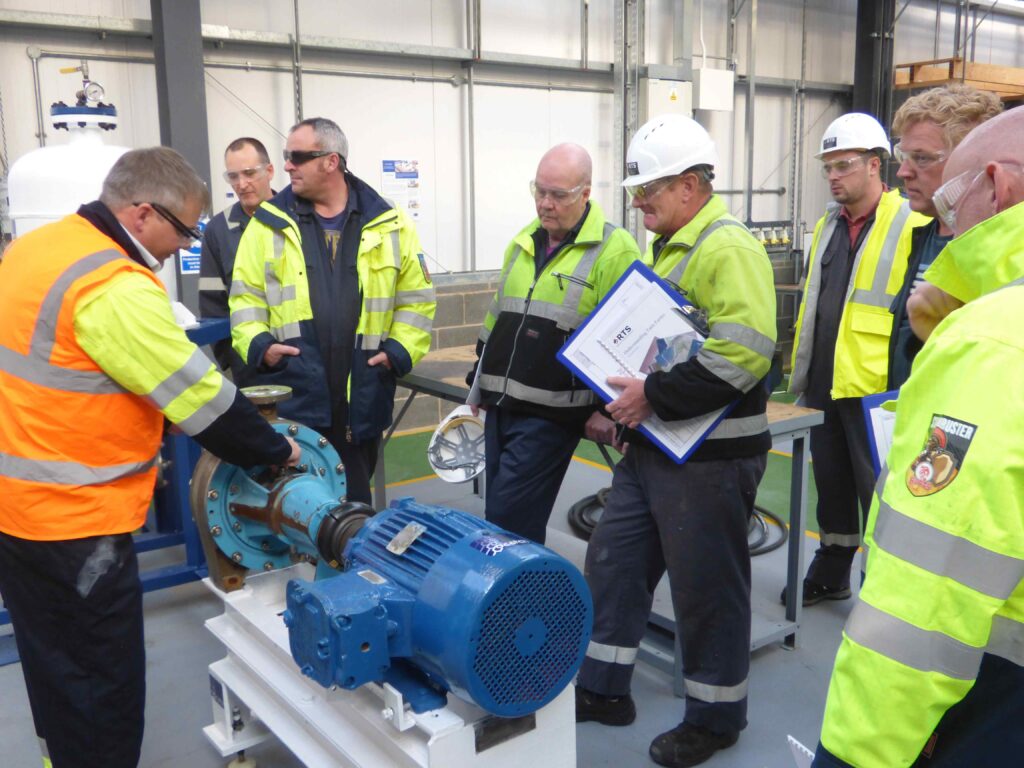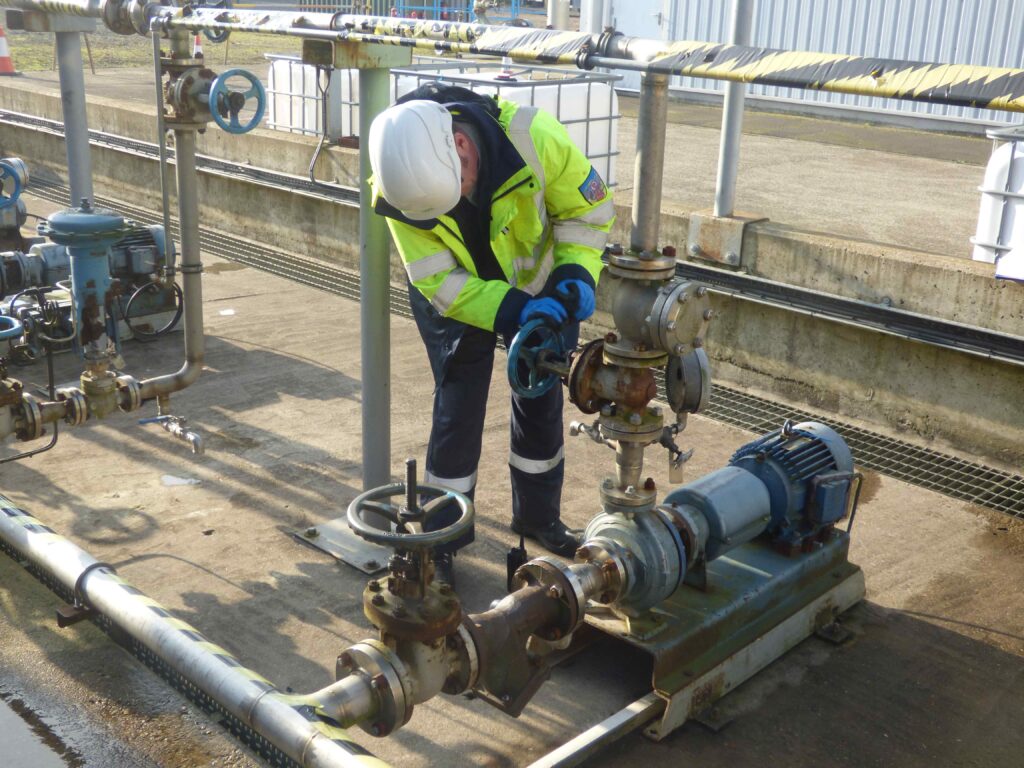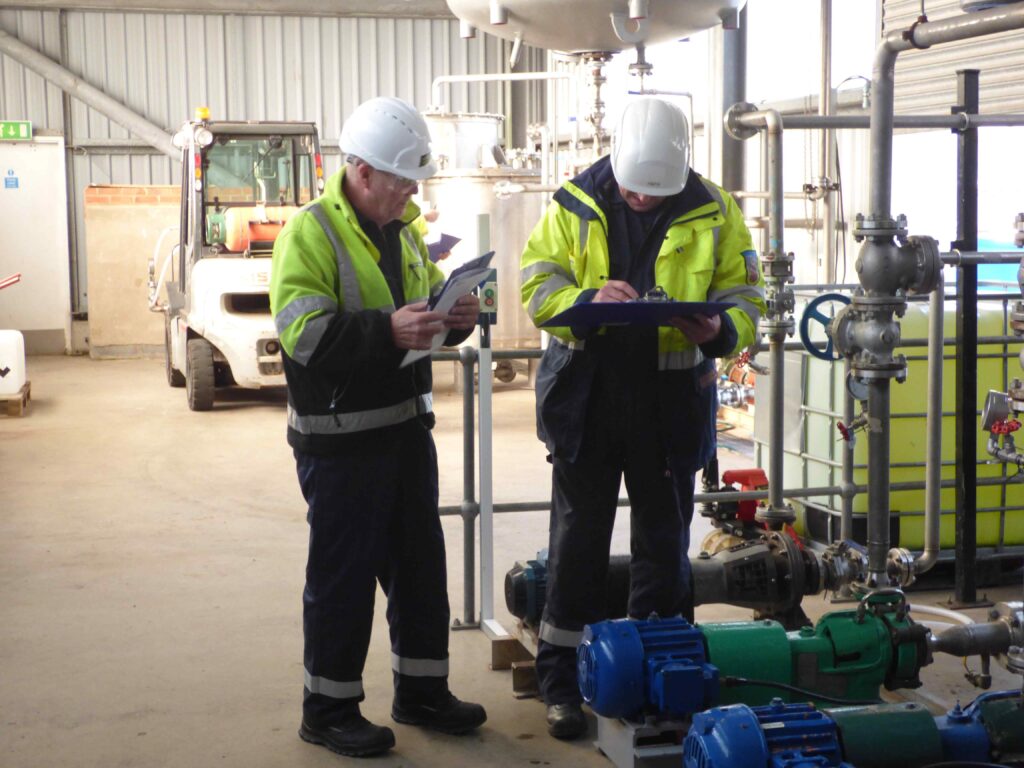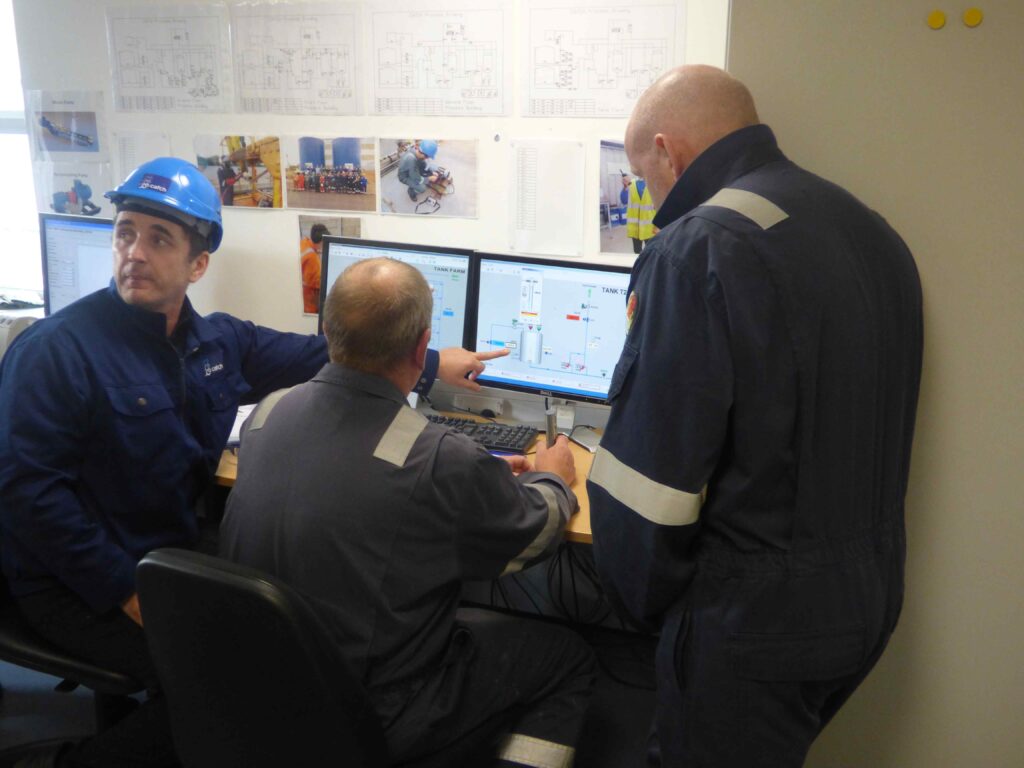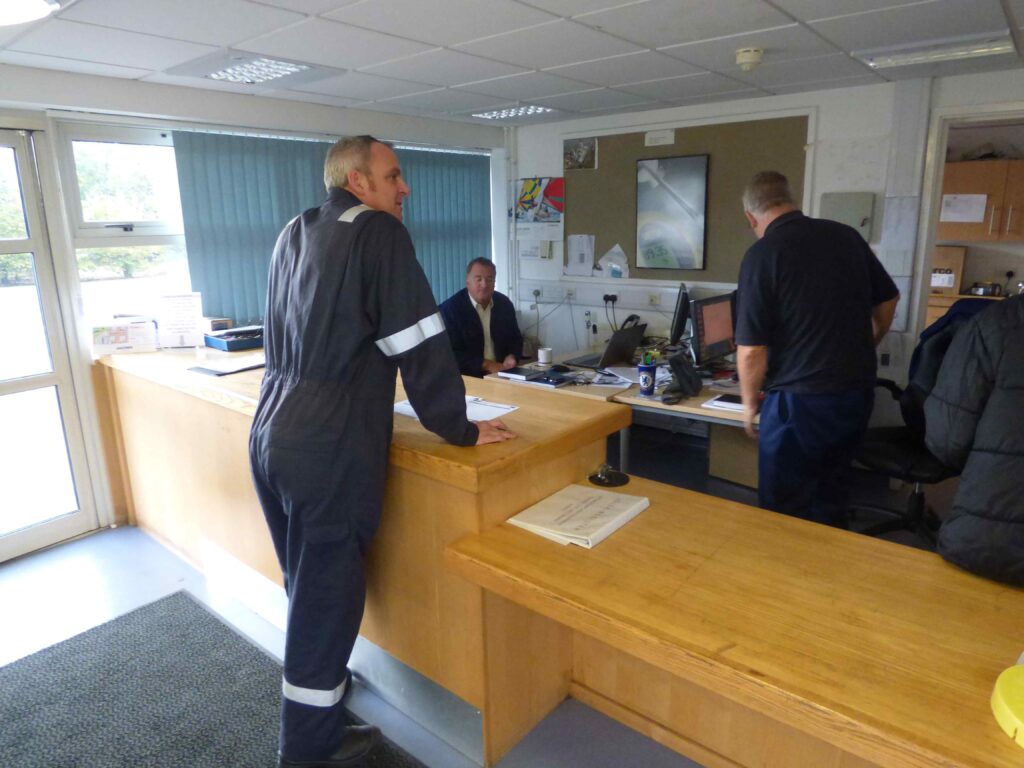By investing in the cost-effective Bulk Liquid Terminal Technician Apprenticeship, your business can benefit from a skilled, safe workforce whilst experiencing increased employee loyalty and retention. You can create a strong and sustainable workforce which is motivated and adaptable, ready for the future of the high hazard and process industries.
The Level 3 Bulk Liquid Terminal Technician Apprenticeship has been approved by IChemE.
Our Apprenticeship programme offers a hands-on approach tailored specifically for bulk liquid storage and processing operations, ensuring that employees not only learn but also apply critical skills directly relevant to your workplace.
This training emphasises safety, with Apprentices learning industry-specific protocols and regulations to help create a safer working environment. Additionally, the program is cost-effective, benefiting from government funding to provide high-quality training without hefty expenses.
Beyond mere skills training, our Apprenticeship aims to cultivate future industry leaders by developing professional attitudes and behaviours that contribute to long-term career success.
Who is this course for?
Any business that can see the value in employing young, enthusiastic, motivated and fully-rounded Operators. You want to recruit staff who have the knowledge, skills and both professional and personal behaviour to become a valuable, essential part of your team and a passionate advocate for your business.
Duration:
27 months
Prerequisites:
Exemptions from Functional Skills will require an apprentice to have gained and have evidence of achievement of English and Maths in the following grades:
GCSE New Grades 4 to 9
GCSE Old Grades A to C
Note: Without evidence of achievement, the ESFA requires Apprentices to be automatically enrolled onto Functional Skills to be achieved at level 2 during the apprenticeship on-programme period and before entry to Gateway and EPA.
An Apprenticeship is a uniquely successful method for producing Operators who are skilled, experienced, knowledgeable and ready to make a constructive and productive contribution to your business in particular and the sector as a whole.
Delivery is underpinned by focusing on developing the personal and professional behaviours that will drive professionalism.
Subjects covered include:
Understanding Industry and The High Hazard Sector
Personal & professional behaviour
Personal protection
First Aid at work
General safety, health and environment awareness
Familiarisation with High Hazard Industries, recognition and real work environments
Presentation and communication skills
Mental health awareness
Engineering and operational equipment basics
Human factors awareness
Understanding Tank Farms
Principles of Process Safety
Plant specific knowledge training
Operational training on:
- Tank farms
- Jetties
- Interceptors
- VRUs
Modes of product transfer
Basic Process Control Systems
Process and managerial systems
This includes a substantial element of site-specific training and familiarisation at the learner’s employer’s own location.
Orientation at learner’s own site
Consolidation of training at learner’s own site
Plant and equipment familiarisation at learner’s own site
Local management instructions, policies, procedures & operation arrangements
Level 3 Technical Training Specialism
The addition of a formal Level 3 qualification gives this Apprenticeship greater value and utility – it’s a fantastic launchpad for a stratospheric world-class career!
Unit 1 – Start-Up Plant and Equipment within a Bulk Storage Operations Environment
Unit 2 – Operate Plant and Equipment within a Bulk Storage Operations Environment
Unit 3 – Shut-down and prepare Plant and Equipment within a Bulk Storage Operations Environment
Unit 4 – Work Safely within a Bulk Storage Operations Environment
Unit 5 – Manage and Control Quality within a Bulk Storage Operations Environment
Unit 6 – Comply with External and Internal Obligations within a Bulk Storage Operations Environment
Unit 7 – Monitor, Check and Resolve Abnormal Conditions within a Bulk Storage Operations Environment
Unit 8 – Manage Product Transfer and Control Quality within a Bulk Storage Operations Environment
Unit 9 – Respond to business & Role Requirements within a Bulk Storage Operations Environment
Unit 10 – Continuous Improvement and Control Effectiveness within a Bulk Storage Operations Environment
Unit 11 – Personal Skills and Communication within a Bulk Storage Operations Environment
Unit 12 – Emergency Response within a Bulk Storage Operations Environment
Unit 13 – Jetty Operations within a Bulk Storage Operations Environment
NB: These units may be undertaken holistically over this period of learning.
What do you get out of the Apprenticeship programme?
Instant professionalism!
An Apprenticeship is a uniquely successful method for producing Operators who are ready to make a constructive and productive contribution to your business
Customisation!
As a pioneer in developing and delivering Apprenticeships to the High hazard, Bulk Storage and Process sector, we know that no two facilities are exactly the same. That’s why we will consult with you and customise the learning experience to ensure that it is bespoke to your specific needs and the needs of your Operators.
We will train candidates to suit your business model, not anyone else’s.
At the end of the Apprenticeship, learners will be assessed in three ways:
1: An observation of them doing a task
2: A written test
3: A one-to-one discussion around key aspects of the Apprenticeship program.
Once Operators have the experience and the competence of the Apprenticeship – allied with the formal Level 3 qualification – then their Operational Career pathway has a range of options open to them.
Year 1:
This is the Core Training, where Apprentices learn the basics they need to complete their roles safely and effectively. This will make extensive use of our real-world-emulating training facility, the NCPM.
Year 2:
This will add time-served experience at the Apprentice’s own workplace to the Core Training as well as including all of the curriculum elements for the qualification: Level 3 Bulk Liquid Terminal Technician Specialism.
Upon completion, at the end of Year 2, Apprentices then have three months to complete the Assessment requirements.
For more info on your progression, get in touch with your Learning Advisors.
The Apprenticeship standard requires 20% of the learning to be ‘off the job training’ but, in order to limit the disruption to the Apprentice’s duties at your facility – this can be our site or your site.
Don’t forget – that 20% they’re ‘off the job’ massively improves the Apprentice’s performance the other 80% of the time!
Year 1:
Training is divided equally, 50% of the time Apprentices will be on your site and 50% of the time they will be with us at our Technical Training Centre.
Year 2:
The emphasis shifts to ensuring their learning is focused as much as possible on your specific needs – so 85% of the time they will be on your site, with just 15% of training taking place at our site.
The End Point Assessment then takes place entirely at your site.
Reynolds Training Services Ltd
Technical Training Centre
Kiln Lane,
Redwood Park Estate, Stallingborough
North East Lincolnshire
DN41 8TH

Lead Tutor: John Reynolds
The driving force behind Reynolds and a leading figure in the Bulk Storage sector.
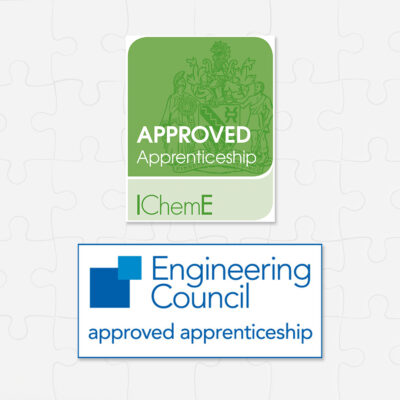
September 2024 – Register Your Interest
Are you looking to expand your skilled workforce within Bulk Liquid Storage Terminal Operations? Don’t dismiss the apprenticeship route!
We’re looking for expressions of interest in our Level 3 Bulk Liquid Storage Terminal Technician Apprenticeship.
Our next cohort commences September 2024, but the intake process starts now.
For advice, further information, or to register your interest, get in touch today.
Why an Apprenticeship
is right for you
This is the ONLY Apprenticeship that is specialist to the sector – and Reynolds are the premier trainers offering it as we were part of the team that developed it and we have pioneered delivering it for many years now.
This is a great business sector to work in – and it’s the most exciting time to join.
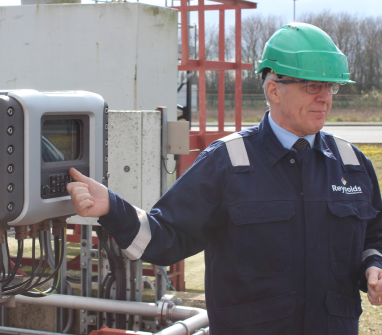
Why Reynolds?
At Reynolds Training, we offer our Apprentices the latest industry-standard technology.
Energy Transition = Exciting Times
As the world makes advances through energy transition, we will need young, imaginative, ambitious and well-trained Operators who are able to adapt to an ever-changing future of fuel.
Our Apprenticeship programme is uniquely suited to helping our sector build a strong, sustainable workforce for the future by giving new employees the knowledge, skills and behaviour they need to ensure a safe, sustainable and profitable future for themselves, for their employer and for the entire industry.
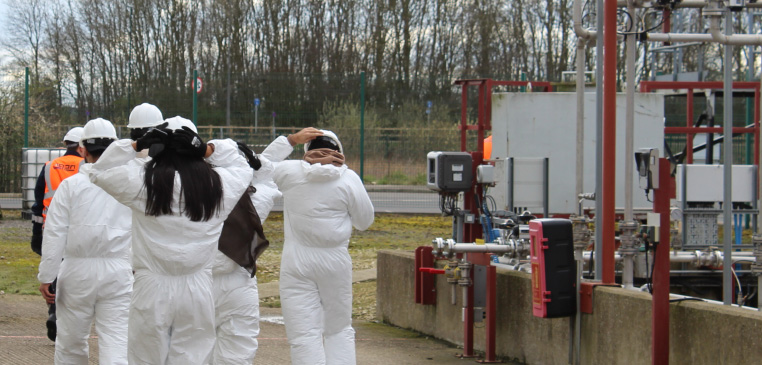
Why you should
become an Apprentice
Discover a world of opportunity with Reynolds’ Apprenticeship programme. Gain hands-on experience, industry-specific qualifications and financial support for your exciting career journey.

Earn while you learn

Industry qualifications

Hands-on Experience
Why you should
employ an Apprentice
Unleash the potential of your workforce through Reynolds’ hands-on Apprenticeship approach. Tailored to your business needs, safety-focused and financially-supported, for a skilled and safer future.

Skilled
workforce
Our hands-on Apprenticeship approach ensures that your employees gain the specific skills and knowledge needed for your business.

increased
safety
Safety is our top priority. Apprentices will be trained in industry-specific safety protocols, helping to create a safer working environment for all.

customisable
training
Our Apprenticeship can be tailored to meet your specific needs. We can customise the delivery to focus on the skills and knowledge that your business needs.

Cost-effective training
With government funding and support, you can benefit from a fully-trained and skilled workforce without incurring high training costs.
How much does this Apprenticeship cost the employer?

So, how does the funding work?
Businesses with more than £3 million annual wage bill already contribute 0.5% of that bill into The Apprenticeship Levy.
When you recruit Apprentices – you can draw that money back, to pay for their training and assessment. You don’t need to take any action – We confirm Levy eligibility for you.
After two years, your unclaimed payments go into the ‘national pot’. If you don’t claim the money yourself, you’re paying for someone else to employ Apprentices.
No problem. You can still claim 95% funding. You contribute 5% towards the cost of training and assessing your Apprentice. The government will pay the rest (95%) up to the funding band maximum.
You need to:
- agree a payment schedule with us
- pay us directly for the training
At the end of that, you get an experienced and trained Operator.
How we can help…
Unsure about reclaiming your Levy contributions?
Get in touch:
Lines open Monday to Friday, 9am to 5pm, GMT

Where
Apprentices learn
The Apprentice will work at their employers’ site and at our state-of-the-art facility, the NCPM.
The Apprenticeship standard requires 20% of the learning to be ‘off-the-job training’ – this can be delivered in one of three ways …
Our Place

Learning takes place in the classroom and on the ground in our training facility, the NCPM.
YOur Place

Once they are versed in the basics, your candidates will return to you and begin the next stage of their training.
Online

To reduce time spent offsite, we have developed our online learning and support platforms: Virtual Reynolds & CALMcloud.
The NCPM:
Our cutting-edge training facility
The National Centre for Process and Manufacturing is the UK’s first fully-operational facility of its kind, created to provide learners with unique and realistic training experiences. Our process plant aligns directly with bulk liquid and gas storage industries, both nationally and internationally.
